I read the novel Dracula years ago. I struggled to read it at first because of the language – not that English isn’t my first language, it is, but this book was written so long ago and our language has changed and evolved so much that it’s getting difficult to understand easily. Because of that, I decided to take Dracula and edit it to fit in better with modern-day language.
Here’s the project I set myself then. I hope you enjoy it… it’s taken quite a while.
Pictures from Google Images - licenced for re-use
DRACULA
by
Bram Stoker
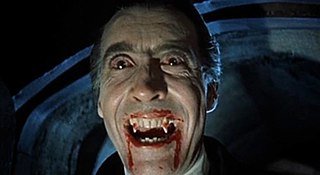
NEW YORK
GROSSET & DUNLAP
Publishers
Copyright, 1897, in the United States of America, according to Act of Congress, by Bram Stoker
[All rights reserved.]
TO MY DEAR FRIEND HOMMY-BEG
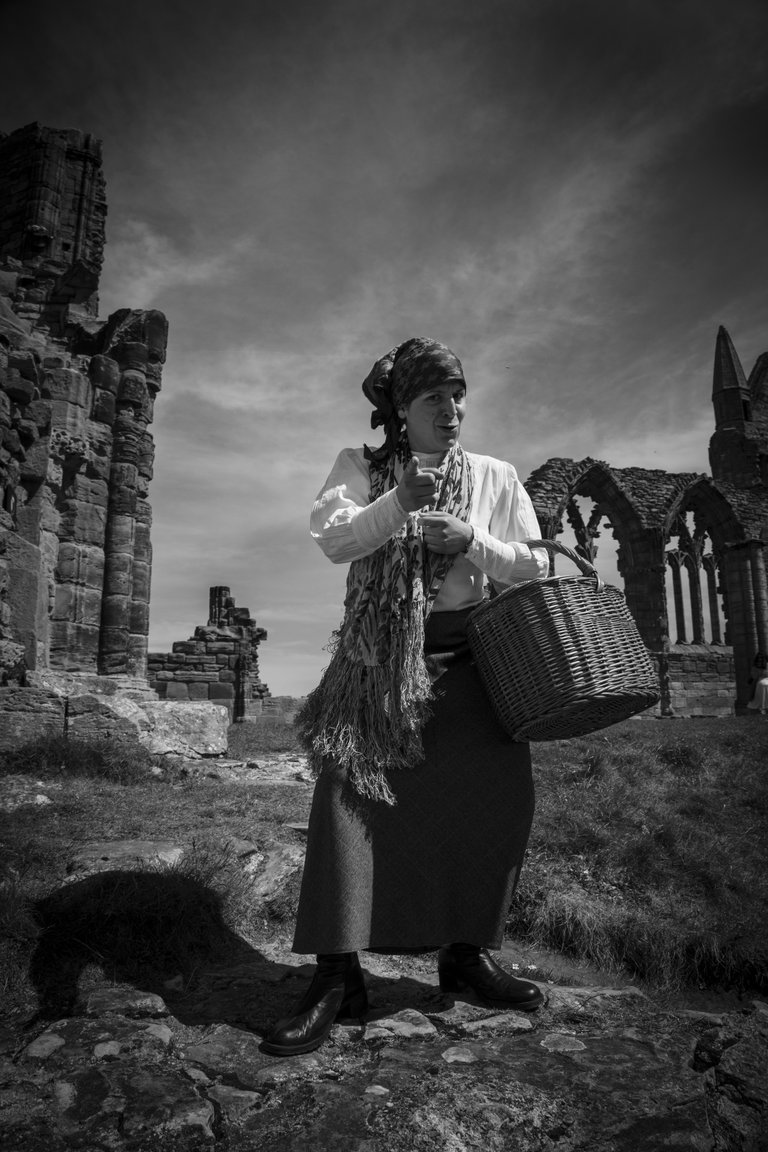
DRACULA
CHAPTER I
JONATHAN HARKER'S JOURNAL
(Kept in shorthand.)
3 May. Bistritz.
Left Munich at 8:35 P. M., on 1st May, arriving at Vienna early next morning; should have arrived at 6:46, but train was an hour late. Budapest seems a wonderful place, from the glimpse I got of it from the train and the little I could walk through the streets.
I didn’t go very far from the station, as we arrived late and would start as near the scheduled time as possible.
The impression I had was that we were leaving the West and entering the East; the most western of splendid bridges over the Danube, a wide and deep river, took us back in time, almost, to Turkish rule.
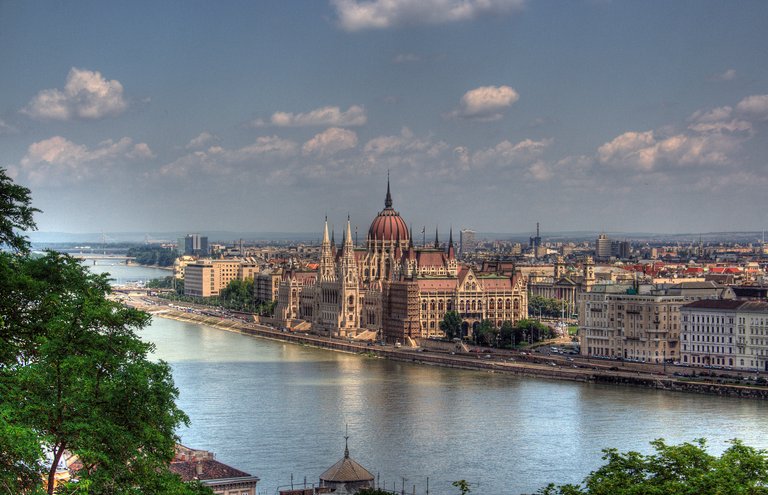
We left in pretty good time, and arrived at Klausenburgh after dark.
I stopped for the night at the Hotel Royale. I had a late supper; chicken done somehow with red pepper, which was very good but made me thirsty. (Memo, get recipe for Mina.)
I asked the waiter, and he said it was called "paprika hendl," and that, as it was a national dish, I should be able to get it anywhere along the Carpathians. I found my smattering of German very useful here; actually, I think it would be difficult to get on without it.
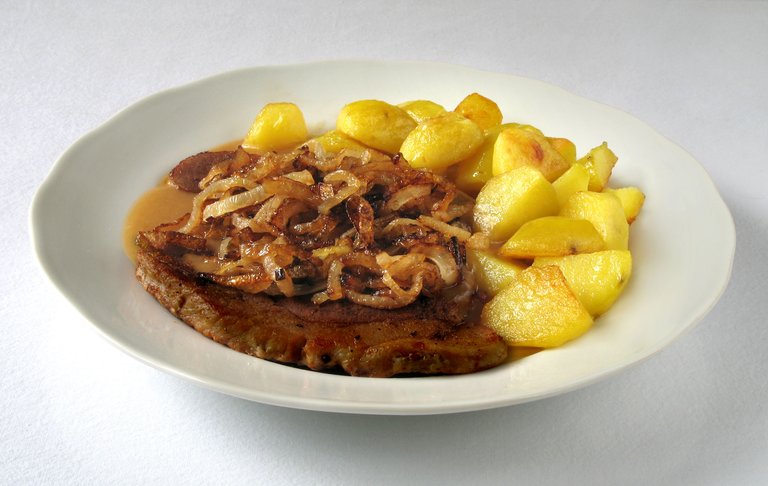
Before I left London, I visited the British Museum, and researched the trip to Transylvania among the books and maps in the library.
I thought that some knowledge of the country would come in handy in dealing with a nobleman of that country.
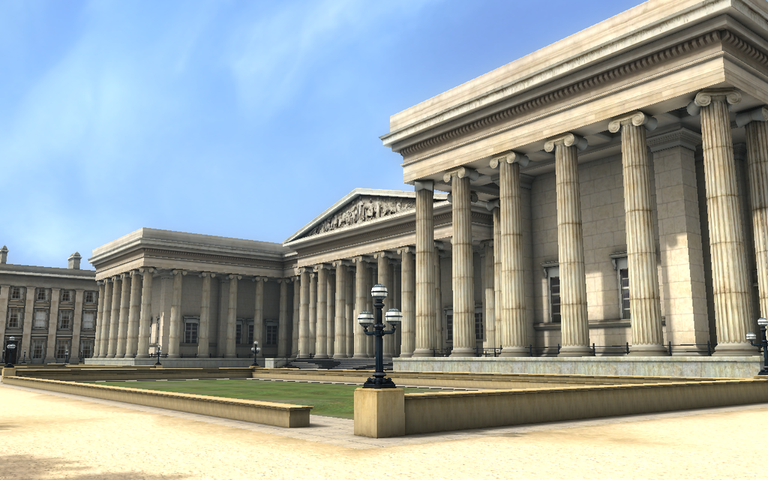
The district he mentioned is in the extreme east of the country, just on the borders of three states, Transylvania, Moldavia and Bukovina.
The Carpathian Mountains is one of the wildest and least known portions of Europe. I was unable to find any map giving the exact location of the Castle Dracula, as there are no maps of this country to the standard of our Ordnance Survey maps. I found Bistritz, though. That’s the town named by Count Dracula, it’s a fairly well-known place. I’ll keep notes, they’ll help refresh my memory when I talk over my travels with Mina when I return.
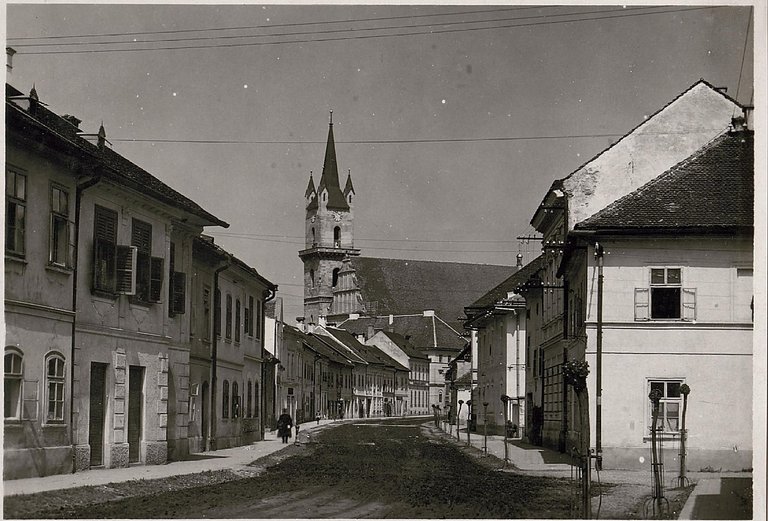
Transylvania is made up of four distinct nationalities: Saxons in the South, the Wallachs (descendants of the Dacians), Magyars in the West, and Szekelys in the East and North.
I’ll be among the Szekelys, who claim to be descended from Attila and the Huns. When the Magyars conquered the country in the eleventh century they found the Huns settled in it.
I read that every known superstition in the world is gathered into the horseshoe of the Carpathians, as if it were the centre of some sort of imaginative whirlpool; if so, my stay may be very interesting. (Memo, I must ask the Count all about them.)
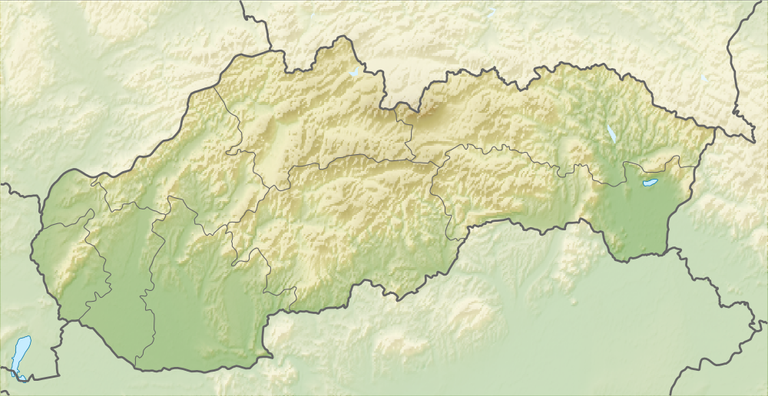
I didn’t sleep well. My bed was comfortable enough, but I had all sorts of strange dreams and there was a dog howling all night under my window. That could be the cause of it; or it may have been the paprika. I had to drink up all the water in my jug, and was still thirsty. Towards morning, I slept and had to be woken, so I guess I must have been sleeping soundly then.
For breakfast, I had more paprika, and a sort of porridge of maize flour which they said was "mamaliga," and egg-plant stuffed with some sort of meat, a very excellent dish, which they call "impletata." (Memo, get recipe for this also.)
I had to hurry breakfast, the train was due just before eight. Of course, after rushing to the station at 7:30, I had to sit in the carriage for more than an hour before we set off. It seems that the further east you go, the more unpunctual are the trains. What must they be like in China?
All day we dawdled through a country full of beauty of every kind. Sometimes we saw little towns or castles on the top of steep hills, sometimes we ran by rivers and streams with a wide stony margin on each side, it made me wonder if the area is prone to floods. It takes a lot of water, and running strong, to sweep the outside edge of a river clear.
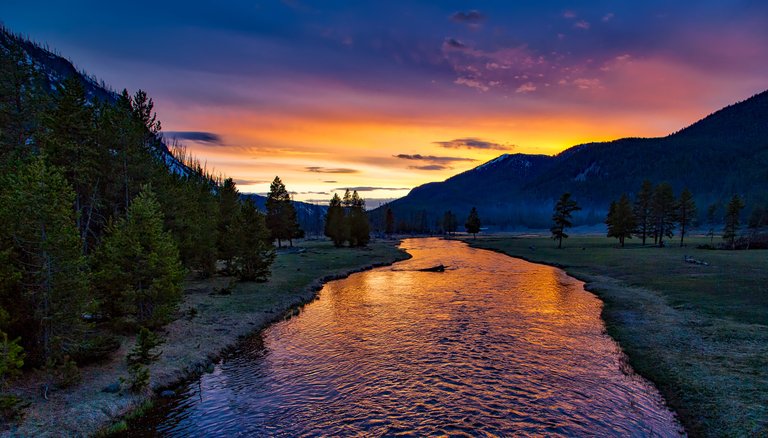
We stopped at every station and the groups of people, were diverse and varied in their clothing. Some were just like the peasants at home, or those I saw coming through France and Germany, with short jackets, round hats and home-made trousers; but others were very picturesque. The women looked pretty, except when you got near them.
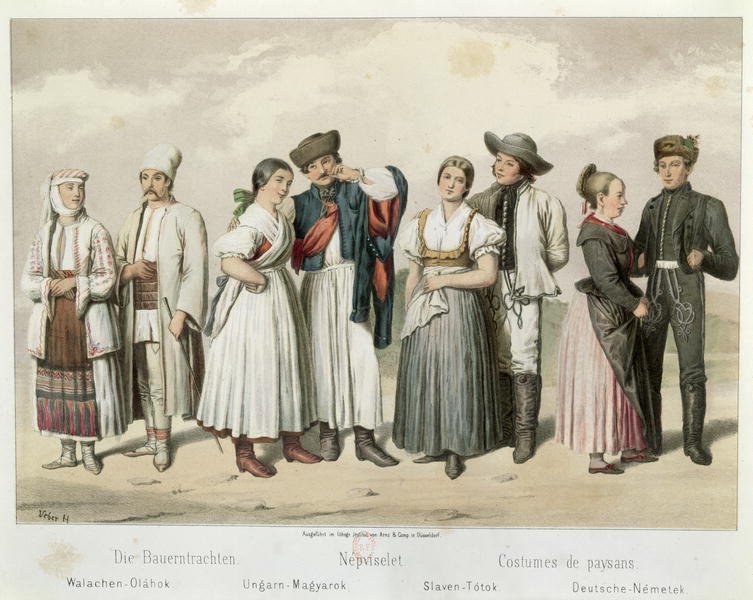
They all had full white sleeves, and most of them had big belts with a lot of strips of something fluttering from them like the dresses in a ballet, but of course there were petticoats under them. The strangest figures we saw were the Slovaks, who were more barbarian than the rest, with their big cowboy hats, baggy dirty-white trousers, white linen shirts, and enormous heavy leather belts, nearly a foot wide, all studded over with brass nails. They wore high boots, with their trousers tucked into them, and had long black hair and heavy black moustaches. They are very picturesque, but do not look pleasant. They are, however, I am told, harmless.
It was on the dark side of twilight when we got to Bistritz, an interesting old place. Practically on the frontier - the Borgo Pass leads from it into Bukovina - it has had a stormy existence, and it certainly shows marks of it. Fifty years ago, a series of fires took place, wreaking havoc on five separate occasions. At the very beginning of the seventeenth century, it underwent a siege of three weeks and lost 13,000 people, not only the casualties of war, but also famine and disease.
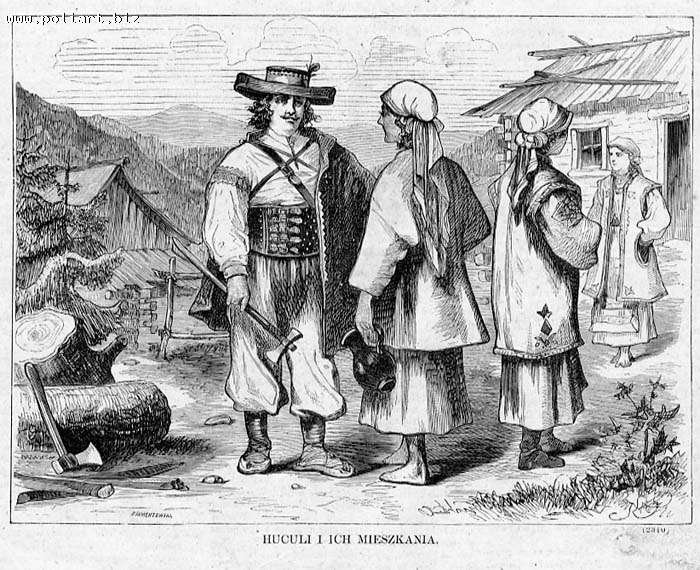
Count Dracula had directed me to go to the Golden Krone Hotel, a delightful and thoroughly old-fashioned hotel. Of course, I wanted to see all I could of the ways of the country. I was expected, for when I got near the door, I faced a cheery-looking elderly woman in the usual peasant dress – white undergarment with long double apron, front, and back, fitting almost too tight for modesty. When I came close, she bowed and said, "The Herr Englishman?" "Yes," I said, "Jonathan Harker."
She smiled, and gave some message to an elderly man who had followed her to the door. He went, but returned with a letter:--
My Friend.
Welcome to the Carpathians. I am anxiously expecting you. Sleep well tonight. At three tomorrow, the coach will start for Bukovina; a place on it is kept for you.
At the Borgo Pass, my carriage will await you and will bring you to me. I trust that your journey from London has been a happy one, and that you will enjoy your stay in my beautiful land.
Your friend,
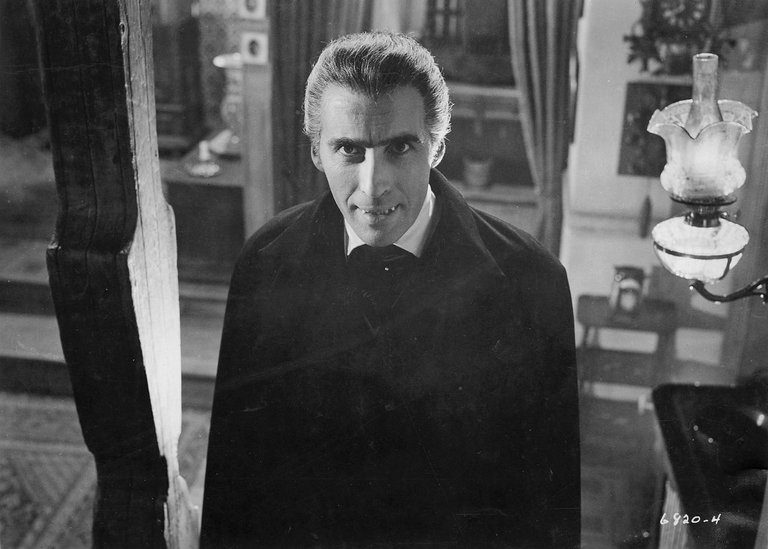
DRACULA.
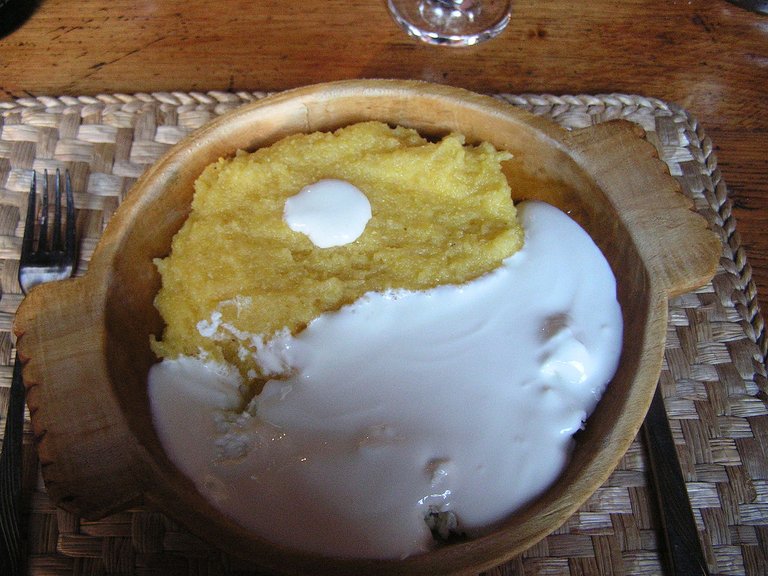
As modern readers, the names Dracula and Transylvania already have so many connotations for us. But it occurred to me that the readers of the time would have found them quite innocent as they read the first part of the book. So their reactions as it went on would have been different too.
Yes. The diary reads like a travel journal and I dare say some readers were sucked in (pardon the pun) and didn't realise what they were reading to begin with.
amazing story .
It is. It captured the imagination of the Victorians and has kept hold ever since.
Great idea and well written. I like you, attempted to read Dracula as I love supernatural especially vampire, but found it hard going.
Resteemed :)
Thank you.
Dracula is so widely-known because of the visual media. The story is familiar to just about every generation, yet I doubt many have read the book.